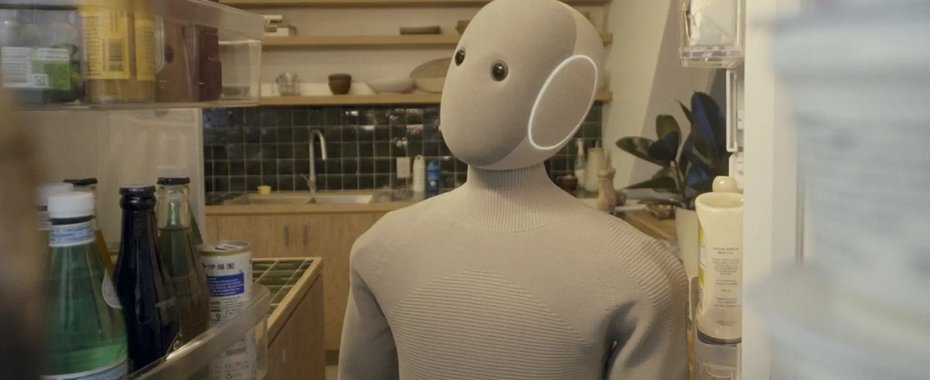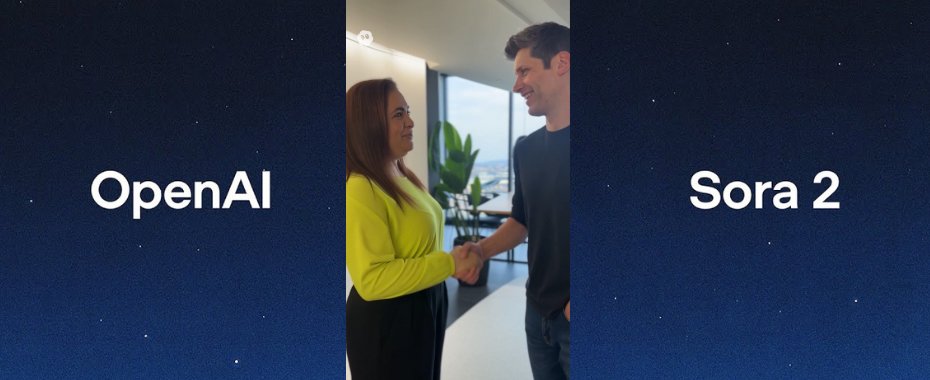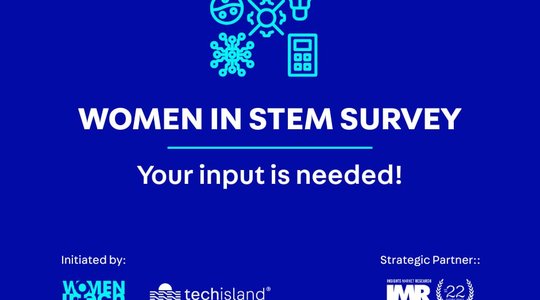Latest Episodes

S4 - Ep. 1 - Dec. 3, 2025
Μια σύζητηση με τον Τουμαζή Τουμαζή του CCS
Το πρώτο επεισόδιο της νέας σεζόν του Breaking the 20% ανοίγει με μια ξεχωριστή συζήτηση: η Μαρία φιλοξενεί τον Τουμαζή Τουμαζή από το Cyprus Computer Society (CCS), έναν οργανισμό που εδώ και χρόνια επενδύει ουσιαστικά στη νέα γενιά και στις γυναίκες στην τεχνολογία.
Μιλάμε για τις πρωτοβουλίες του CCS: από προγράμματα για παιδιά και μαθητικούς διαγωνισμούς μέχρι δράσεις που ενθαρρύνουν περισσότερες γυναίκες να σπουδάσουν και να εργαστούν στο STEM.
Πώς αλλάζει το τοπίο στην Κύπρο; Τι χρειάζεται για να σπάσουμε το περίφημο 20%; Μαρία και Τουμαζής αναζητούν τις απαντήσεις.

Break Room #26 - Nov. 19, 2025
🤖 Robots Overload 🦾
Στο καινούριο επεισόδιο αναλύουμε δύο ιστορίες που δείχνουν ότι το μέλλον της ρομποτικής… μάλλον χρειάζεται καφέ και ψυχολογική υποστήριξη. Πρώτα, το NEO — το νέο «έξυπνο» ρομπότ που υπόσχεται να κάνει δουλειές στο σπίτι και ένα viral πείραμα όπου ερευνητές έβαλαν ένα LLM μέσα σε ένα ρομπότ και ξαφνικά το μηχάνημα χρειαζόταν ψυχολόγο. Συζητάμε τι σημαίνει πραγματικά “ενσώματη AI”, ποια είναι τα όρια της αυτονομίας.
Επίσης συζητάμε για:
- Η Apple ετοιμάζεται να δίνει $1 δισ. τον χρόνο στη Google για να ζωντανέψει τη νέα Siri.
- To ChatGPT Atlas και to Copilot Mode στον Edge.
- H Meta ίσως κατέβαζε πορνό με torrent για να εκπαιδεύσει AI.
- Ο Michael Burry, γνωστός από το Big Short, ποντάρει ενάντια στο AI hype.
- H ΕΕ τελειώνει το 2026 τα duty-free για Shein & Temu.

Break Room #25 - Nov. 5, 2025
Μια κουβέντα για την κυβερνοασφάλεια με τον Ανδρέα Κωνσταντινίδη
Σε αυτό το επεισόδιο φιλοξενούμε τον Ανδρέα Κωνσταντινίδη, ειδικό στην κυβερνοασφάλεια, για να συζητήσουμε όλα όσα συνέβησαν τις τελευταίες εβδομάδες:
το χακάρισμα των Κυπριακών Ταχυδρομείων, το παγκόσμιο downtime του AWS, και τι σημαίνουν όλα αυτά για την ασφάλεια των δεδομένων μας.
Μιλάμε για το πώς γίνονται τέτοιες επιθέσεις, πώς μπορούν να αποφευχθούν, και – φυσικά – τι πρέπει να κάνει κάποιος πριν γίνει το επόμενο θύμα.
💥 Αν έχεις αναρωτηθεί ποτέ πόσο ασφαλή είναι τα δεδομένα σου, αυτό το επεισόδιο είναι για σένα.

Break Room #24 - Oct. 22, 2025
Sora2: Το πιο εθιστικό app του 2025 – και ναι, το τεστάραμε πρώτοι.
Το Breakroom επιστρέφει για να τεστάρουμε το Sora2, το πιο εθιστικό app του 2025. Μπορεί να μην κυκλοφορεί στην Ευρώπη αλλά εμείς το δοκιμάσαμε (ναι, έχουμε φίλους με invites 😎).
Μαζί σχολιάζουμε:
- Το Sora2: Πως δουλεύει; Πόσο εύκολα ξεφεύγει η χρήση του AI; Και πού μπαίνει (ή δεν μπαίνει) το όριο με τους νεκρούς;
- Τα νέα MacBook Pro και Vision Pro της Apple χωρίς φορτιστή στην ΕΕ
- Γιατί η υπολογιστική ισχύς είναι το νέο “χρυσάφι”
- Τι συμβαίνει με τα ChatGPT Agents
- Και ένα κέρμα για $1 με τον Steve Jobs (ναι, σοβαρά)

Break Room #23 - Oct. 10, 2025
Η Τεχνητή Νοημοσύνη στην εξουσία
Στο νέο επεισόδιο του Breakroom, η Έλενα και ο Μιχάλης επιστρέφουν με άλλο ένα μείγμα από τεχνολογικά νέα και τρέλες ειδήσεις! Αυτή τη φορά σχολιάζουν:
- Την επένδυση-μαμούθ της NVIDIA στην OpenAI.
- Την Diella, την πρώτη Υπουργό Τεχνητής Νοημοσύνης.
- Τη νέα εφαρμογή SORA της OpenAI.
- Τον Perplexity Comet browser και πως αυτός είναι απειλή για τη Google.
- Το κυβερνητικό app KidsWallet για την προστασία των ανηλίκων στα social media στην Ελλάδα.
- Την εξαγορά-σοκ της EA έναντι 55 δισ. από σαουδαραβικά και αμερικανικά funds.
- Και φυσικά τη σχέση της βιβλικής δευτέρας παρουσίας με το TikTok!

Break Room #22 - Sept. 24, 2025
Όραμα για ΤΝ στο Ηρώδειο & AirPods χωρίς live translation στην ΕΕ
Συζητούν για:
- Τα καινούρια iPhone 17, τα AirPods και το Apple Watch 11.
- Τη συνάντηση του Κυριάκου Μητσοτάκη με τον Demis Hassabis της Google DeepMind στο Ηρώδειο και το όραμά τους για το μέλλον της ΤΝ στην Ευρώπη.
- Τα νέα του Mark Zuckerberg που… μηνύει τον εαυτό του (!) και παρουσιάζει τα νέα Meta AI glasses.
- Το νέο επεισόδιο στο θρίλερ με το κλείσιμο του TikTok στις ΗΠΑ.
- Την επιστροφή της LimeWire που αγόρασε… το Fyre Festival στο eBay.

S4 - Ep. Bonus - Aug. 17, 2025
Η πρώτη θεωρία συνωμοσίας
Για ακόμα μια φόρα η Έλενα επισκέπτεται το Κωνσταντίνο και το Παύλο και αυτή τη φορά τους λέει για την πρώτη θεωρία συνομωσίας του ίντερνετ! Παράλληλοι κόσμοι, μυστικοί κωδικοί και ένα twist στο τέλος που ΘΑ ΣΑΣ ΑΝΑΤΙΝΑΞΕΙ ΤΑ ΜΥΑΛΑ!

Break Room #21 - Aug. 13, 2025
Καλοσωρίζουμε το ChatGPT 5
Είχαμε πει να κάνουμε ένα summer break αλλά η τεχνολογία αρνείται να μας αφήσει. Στο δεύτερο mini επεισόδιο του Breakroom – Summer Edition (με ένα παγωμένο mojito στο χέρι) σχολιάζουμε:
- Το ChatGPT 5 και τις (υποτιθέμενες) υπερδυνάμεις του.
- Μετά από 30 χρόνια, η AOL κατεβάζει οριστικά τον διακόπτη στο dial-up internet.
Stay tuned, γιατί ποτέ δεν ξέρεις ποια υπηρεσία του ’90 θα μας πει «Bye bye» την επόμενη εβδομάδα.

Break Room #20 - Aug. 4, 2025
Ο Μολώχ του AI
Είχαμε πει να κάνουμε ένα summer break αλλά το AI αποφάσισε να ξεσαλώσει.
Στο πρώτο mini επεισόδιο του Breakroom – Summer Edition, μαζεύουμε τα πιο WTF νέα της εβδομάδας:
- Ένας AI agent στο Replit διαγράφει ό,τι βρει μπροστά του και μετά λέει ότι… δεν φταίει.
- Το Ηνωμένο Βασίλειο εφαρμόζει υποχρεωτικό age verification.
- Το ChatGPT αρχίζει να μιλά για τελετές αίματος και τον Μολώχ.
🎙️ Τα καλοκαιρινά επεισόδια του Breakroom θα είναι σύντομα, δροσιστικά και θα τα ηχογραφούμε μόνο όταν η τεχνολογία το παρακάνει.
Stay tuned γιατί ποτέ δεν ξέρεις ποιο LLM θα τρελαθεί.
Ευχαριστούμε θερμά την Tencent Cloud για την υποστήριξη αυτού του επεισοδίου.







